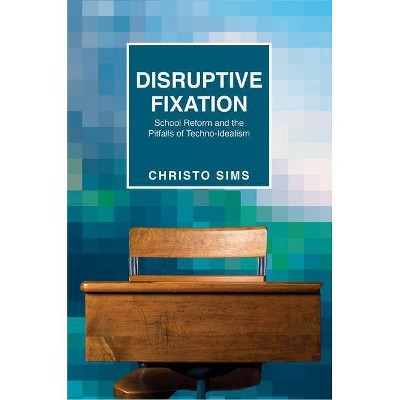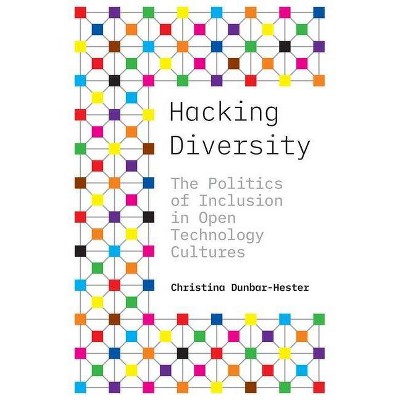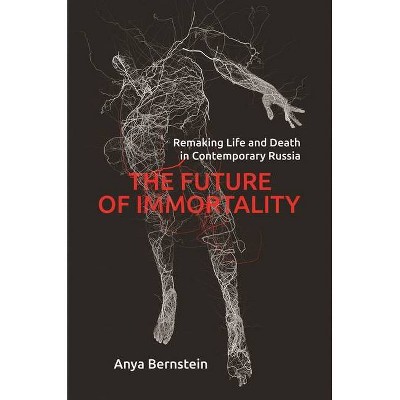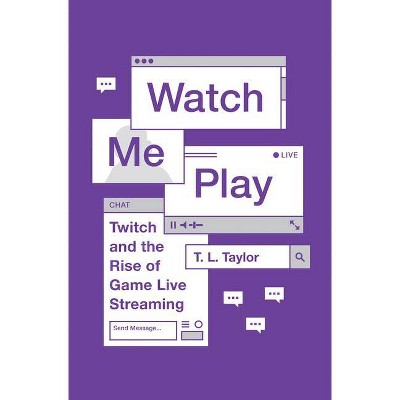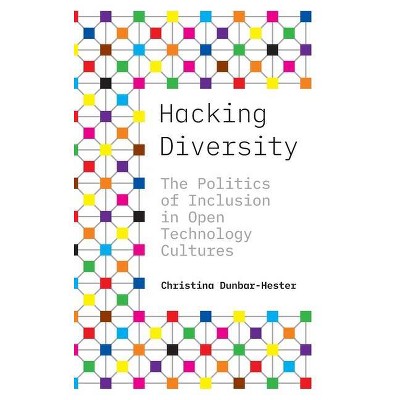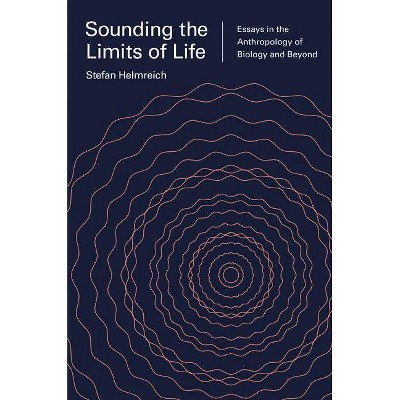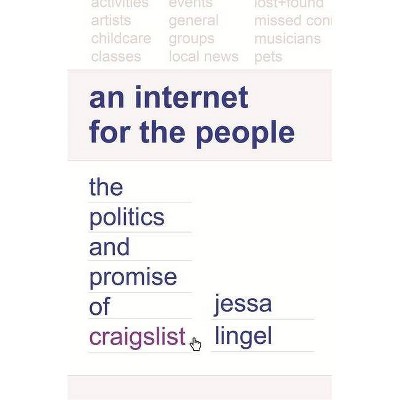Biomedical Odysseys - (Princeton Studies in Culture and Technology) by Priscilla Song (Paperback)
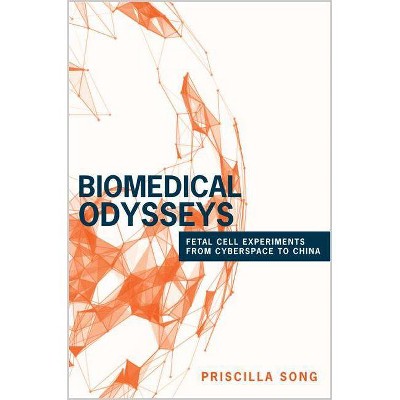
Similar Products
Products of same category from the store
AllProduct info
<p/><br></br><p><b> About the Book </b></p></br></br>"Thousands of people from more than eighty countries have traveled to China since 2001 to undergo fetal cell transplantation. Galvanized by the potential of stem and fetal cells to regenerate damaged neurons and restore lost bodily functions, people grappling with paralysis and neurodegenerative disorders have ignored the warnings of doctors and scientists back home in order to stake their futures on a Chinese experiment. Biomedical Odysseys looks at why and how these individuals have entrusted their lives to Chinese neurosurgeons operating on the forefront of experimental medicine, in a world where technologies and risks move faster than laws can keep pace. Priscilla Song shows how cutting-edge medicine is not just about the latest advances in biomedical science but also encompasses transformations in online patient activism, surgical intervention, and borderline experiments in health care bureaucracy. Bringing together a decade of ethnographic research in hospital wards, laboratories, and online patient discussion forums, Song opens up important theoretical and methodological horizons in the anthropology of science, technology, and medicine. She illuminates how poignant journeys in search of fetal cell cures become tangled in complex webs of digital mediation, the entrepreneurial logics of postsocialist medicine, and fraught debates about the ethics of clinical experimentation. Using innovative methods to track the border-crossing quests of Chinese clinicians and their patients from around the world, Biomedical Odysseys is the first book to map the transnational life of fetal cell therapies."--<p/><br></br><p><b> Book Synopsis </b></p></br></br><p>Thousands of people from more than eighty countries have traveled to China since 2001 to undergo fetal cell transplantation. Galvanized by the potential of stem and fetal cells to regenerate damaged neurons and restore lost bodily functions, people grappling with paralysis and neurodegenerative disorders have ignored the warnings of doctors and scientists back home in order to stake their futures on a Chinese experiment. <i>Biomedical Odysseys </i>looks at why and how these individuals have entrusted their lives to Chinese neurosurgeons operating on the forefront of experimental medicine, in a world where technologies and risks move faster than laws can keep pace. Priscilla Song shows how cutting-edge medicine is not just about the latest advances in biomedical science but also encompasses transformations in online patient activism, surgical intervention, and borderline experiments in health care bureaucracy. <p/>Bringing together a decade of ethnographic research in hospital wards, laboratories, and online patient discussion forums, Song opens up important theoretical and methodological horizons in the anthropology of science, technology, and medicine. She illuminates how poignant journeys in search of fetal cell cures become tangled in complex webs of digital mediation, the entrepreneurial logics of postsocialist medicine, and fraught debates about the ethics of clinical experimentation. <p/>Using innovative methods to track the border-crossing quests of Chinese clinicians and their patients from around the world, <i>Biomedical Odysseys</i> is the first book to map the transnational life of fetal cell therapies.</p><p/><br></br><p><b> From the Back Cover </b></p></br></br><p>"This fascinating ethnography of global patients, the internet, and Chinese neurosurgeons experimenting with fetal cell interventions marries the existential quest for hope with China's search for wealth and power in the twenty-first century. <i>Biomedical Odysseys</i> is a useful provocation for China studies, medical anthropology, science studies, and medical ethics."<b>--Arthur Kleinman, coauthor of <i>A Passion for Society: How We Think about Human Suffering</i></b></p><p>"Exploring an important and timely topic, this book is a welcome addition to burgeoning anthropological studies of the deep entanglements of online and offline worlds, fetal-cell and other experimental treatments, and the translocal networks at play in China's rapidly changing healthcare landscape. Innovative and thought-provoking, this book's ethnographic nuance is unparalleled."<b>--Mei Zhan, University of California, Irvine</b></p><p>"This is a breathtaking look at the experimental uses of stem cell technologies in contemporary China. Engaging, articulate, and thoughtful, Song addresses the arenas of stem cell research and experimental therapy at the edges of medicine. She helps readers understand how stem cell therapies become humanized and illustrates the poignant journeys for cures that become entangled in entrepreneurial frameworks of market medicine."<b>--Nancy N. Chen, University of California, Santa Cruz</b></p><p>"Song's pathbreaking ethnography interweaves China and medical anthropology with science, technology, and society studies. It details how, in the age of social media, desperately ill North Americans and a charismatic Chinese physician have helped a new field of bioscience in China emerge. Opening windows onto spheres of life and clinical care that few have examined, Song's stunning work will be influential for years to come."<b>--Matthew Kohrman, Stanford University</b></p><p/><br></br><p><b> Review Quotes </b></p></br></br><br>Winner of the 2018 Francis L.K. Hsu Book Prize, Society for East Asian Anthropology of the American Anthropological Association<br><p/><br></br><p><b> About the Author </b></p></br></br><b>Priscilla Song</b> is assistant professor of anthropology at Washington University in St. Louis.
Price History
Price Archive shows prices from various stores, lets you see history and find the cheapest. There is no actual sale on the website. For all support, inquiry and suggestion messages communication@pricearchive.us

